Krakow, like all European cities, is a mix of the old and the new. Young people walk along ancient cobblestone street checking email and updating their Facebook status on their cell phones. McDonald’s sits on an ancient street in a building that is at least twice as old as the chain itself.
Often both are present at the same moment, in the same building. Visiting such an old city is a reminder that often, what’s at street level is the least interesting sight. Or, perhaps more accurately, that which is above is at least as interesting as that which is at eye level.
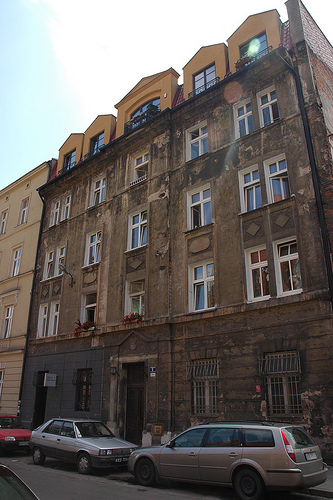
As I strolled along, taking a meandering walk from the rynek to Kazimierz, the old Jewish quarter, I began to pay attention to the balconies.
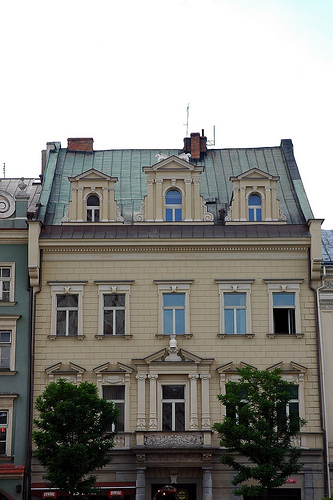
In an urban setting, balconies are often the only part of one’s property that has anything at all to do with the out of doors. Parks, beautiful as they are, are after all public property. A balcony is the only “yard” a city dweller might own.
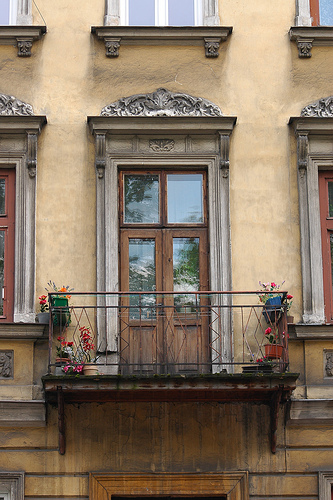
A few flowers and it’s positively garden-like.
Storage is another balcony option. I had a good friend in Warsaw who had a “balcony” at his apartment that couldn’t have been more than ten square feet: just a little spot to stand. He stored his bike and a couple of other items on the balcony. After all, what else could you do with ten square feet? As a non-smoker and non-coffee drinker, he couldn’t even enjoy a morning cigarette (if such things could be enjoyable) and cup of coffee on his balcony.
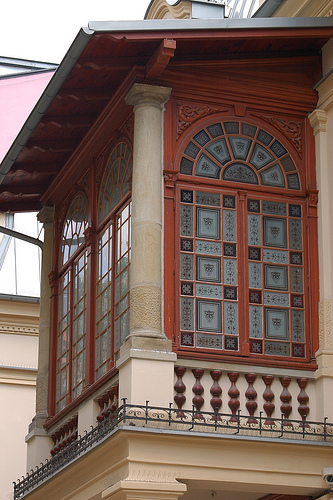
As in most urban areas, space is at a premium. Some decide to turn their little bit of outdoors into an additional room. Then neighbors get balcony envy and enclose theirs,
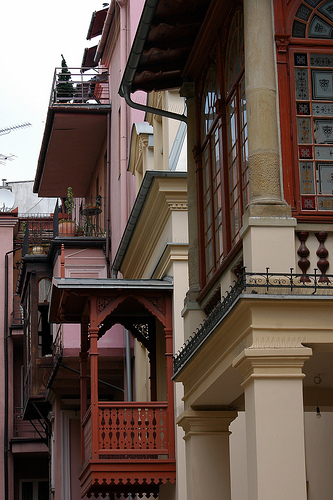
resulting in an alleyway of enclosed balconies.
Given the size of some apartments I’ve visited, it makes perfect sense.
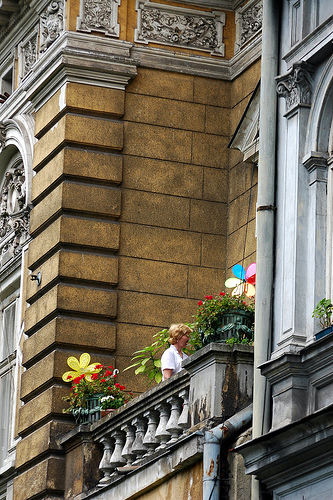
Still others, with a more classic balcony, simply leave it alone. Then again, if one’s balcony is the size of others’ apartments (and I have been in apartments in Warsaw that tiny), one probably has enough apartment on the other side of the balcony to make such a conversion unnecessary.
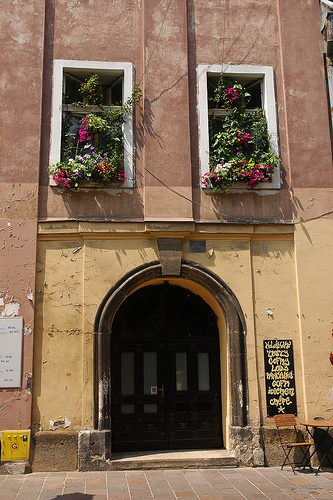
Yet not everyone has a balcony, especially in the Old Town. This is not to say they haven’t carved out their own little outdoor garden. Some, more extravagantly than others.
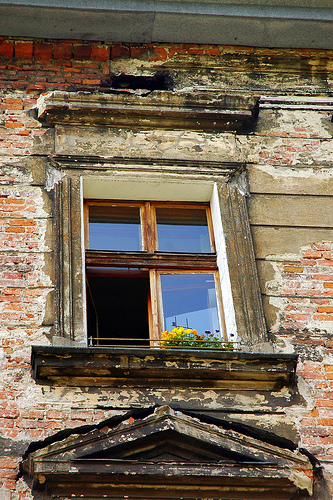
It makes for a bit of color in an otherwise gray setting.
Many, however, just leave well enough alone. Perhaps they figure it’s not worth the time. Perhaps the reason that there’s not much use, given the state of the pre-war facade.
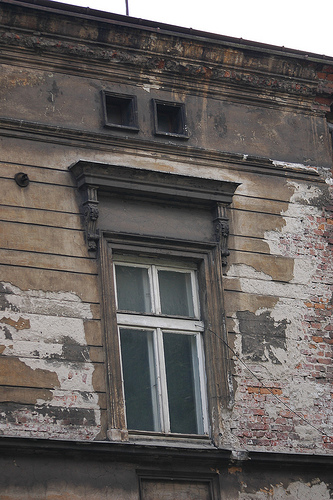
With all the renovation going on all over the city (thanks, European Union), it’s only a matter of time before such sights disappear. In a way, that’s sad: such decrepit facades bear witness to history. They show the gritty underside of Poland, and they serve as a reminder to visitors that, as with much of Europe, the city hasn’t always been filled with days of Italian ice cream and walks in the parks.
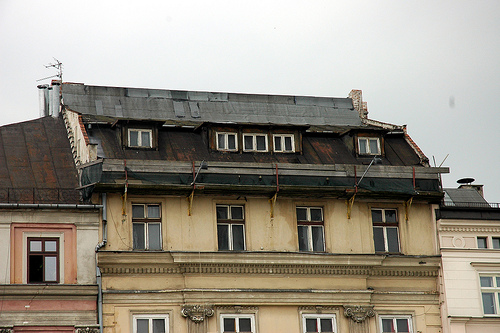
It also shows one of the paradoxes of modern Poland. The building above is literally on the rynek: the most prized location in Krakow real estate. Yet the roof is literally pathetic. It’s the same as in Furmanowa, the meadow overlooking the Tatra Mountains in Zab: prized real estate that’s used for cultivation.
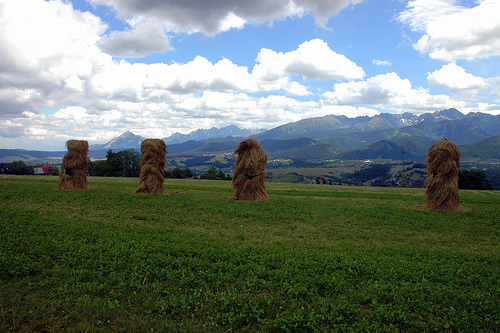
And yet the irony: so many Poles lament how so many of their compatriots have turned so materialistic in the last few years.